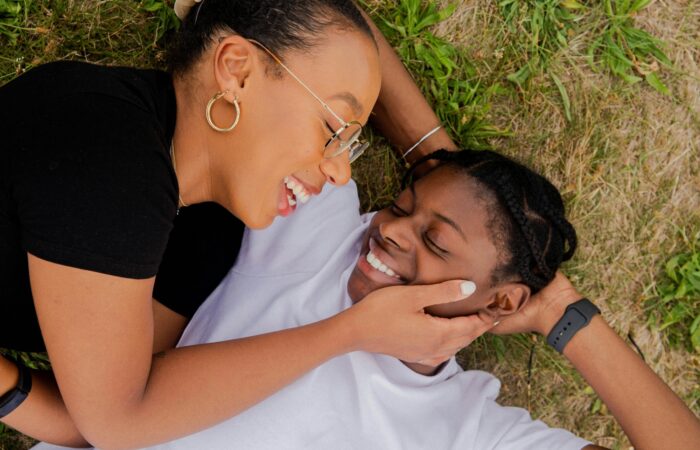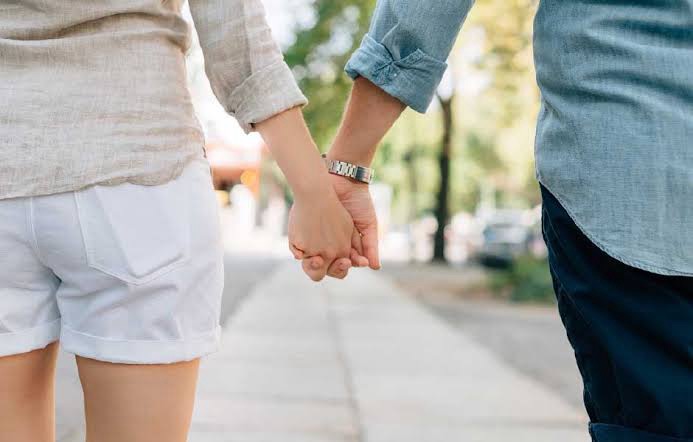
In the realm of relationships, the phrase “emotional baggage” often carries a heavy, negative connotation. It conjures images of past traumas, unresolved issues, or lingering hurts that could potentially weigh down or sabotage a new connection. While it’s true that emotional baggage can complicate relationships, it is not always a dealbreaker. In fact, learning to navigate emotional baggage can lead to deeper understanding, growth, and stronger bonds. Here’s why emotional baggage doesn’t have to mean the end of a relationship, and why it can sometimes be an opportunity for both partners to thrive.
1. Everyone Has Some Form of Emotional Baggage
First and foremost, it’s essential to acknowledge that no one is free from emotional baggage. Every person brings their own history—past relationships, childhood experiences, losses, insecurities, and mistakes—to the table. These elements shape who we are and how we approach life and love.
Rather than viewing emotional baggage as something that sets you apart from potential partners, it’s more helpful to see it as a shared human experience. Everyone carries something from their past, and it’s the way we handle it that makes the difference. A relationship can be a safe space for both people to work through these emotional burdens together, fostering mutual understanding and support.
2. Emotional Baggage Can Be a Sign of Depth
While emotional baggage is often seen as a weakness, it can also signify depth, resilience, and emotional maturity. A person who has worked through difficult experiences—whether it’s overcoming a painful breakup, dealing with grief, or learning from past mistakes—has likely gained valuable insights into themselves and the world around them.
Instead of shying away from someone who has emotional baggage, consider how these experiences have shaped them into the person they are today. A partner who is self-aware, capable of reflection, and open about their struggles can offer a richness of perspective that enhances a relationship. Emotional baggage doesn’t have to be a red flag; it can be a sign of emotional growth.
3. Healing is a Process, Not a Destination
Another key point is that emotional baggage doesn’t define who we are forever. Healing is an ongoing journey, not something that happens all at once. If a person is actively working on their emotional wounds—whether through therapy, self-reflection, or support from loved ones—they are likely on a path to becoming a healthier and more well-rounded individual.
Being in a relationship doesn’t mean you or your partner need to be fully “healed” to be happy together. In fact, relationships often provide a space for growth. You don’t need to wait until all emotional wounds are healed before committing to someone. Sometimes, the act of being in a loving, supportive relationship can be a significant part of the healing process.
4. Emotional Baggage Can Encourage Empathy and Connection
When two people come together and openly share their struggles, vulnerabilities, and past experiences, it creates an emotional intimacy that can strengthen the bond between them. Rather than pushing one another away because of emotional baggage, partners can lean into each other’s pain, offering support, empathy, and validation.
Understanding your partner’s emotional baggage can make you more compassionate and patient. When you’re aware of what someone has gone through, you are better equipped to navigate their emotional triggers and be there for them when they need support. Instead of seeing emotional baggage as a burden, you can view it as an opportunity to develop a deeper, more empathetic connection.
5. Communication is Key
One of the most important elements in handling emotional baggage is open and honest communication. When both partners are willing to talk about their past experiences, fears, and vulnerabilities, they can develop a greater sense of understanding and trust. It’s essential to discuss what emotional baggage looks like for each person, how it may manifest in a relationship, and what kind of support or space they may need from one another.
Rather than assuming that emotional baggage will automatically lead to conflict, use it as a chance to strengthen your communication skills. Setting boundaries, expressing needs, and practicing active listening are all ways to ensure that emotional baggage doesn’t derail the relationship. As long as both partners are committed to addressing and processing their emotional wounds, they can move forward together in a healthy, productive way.
6. A Partner’s Emotional Baggage Doesn’t Have to Be Your Responsibility
It’s important to remember that while emotional baggage is a part of who your partner is, it doesn’t mean it’s your responsibility to fix or carry it for them. A healthy relationship involves both partners supporting one another, but it’s crucial that each person takes responsibility for their own emotional well-being.
If your partner is actively working through their emotional issues, it’s not your job to heal them, but you can offer love, understanding, and encouragement along the way. A relationship thrives when both individuals are invested in their own personal growth, as well as in the growth of the relationship itself.
7. Growth Together is Possible
In a supportive relationship, both partners can help one another evolve. Emotional baggage, when faced with love and respect, can become a catalyst for growth. If both people are open to learning about each other’s pasts and being vulnerable, they can support each other in ways that promote healing and mutual growth.
A relationship built on trust, mutual support, and emotional safety can help both partners unpack their emotional baggage, confront their fears, and heal together. This mutual growth can strengthen the relationship, leading to a deeper, more resilient bond.
Conclusion: Emotional Baggage Isn’t a Dealbreaker; It’s Part of the Journey
Emotional baggage doesn’t have to be the end of a relationship—it can be the beginning of something even stronger. Rather than focusing on the weight of your partner’s past or your own, focus on how you can grow together, support each other, and build a healthier, more loving future. Emotional baggage, when approached with empathy, communication, and respect, can become an opportunity to build a deeper, more meaningful connection.
Ultimately, the key to handling emotional baggage in relationships lies in understanding that no one is perfect. It’s not the baggage itself that defines the relationship, but how both partners choose to navigate it together. With time, patience, and open communication, emotional baggage can be transformed from a challenge into a source of strength, creating a foundation for love that is rich, resilient, and enduring.
Tags:
Subscribe To Get Update Latest Blog Post
No Credit Card Required



